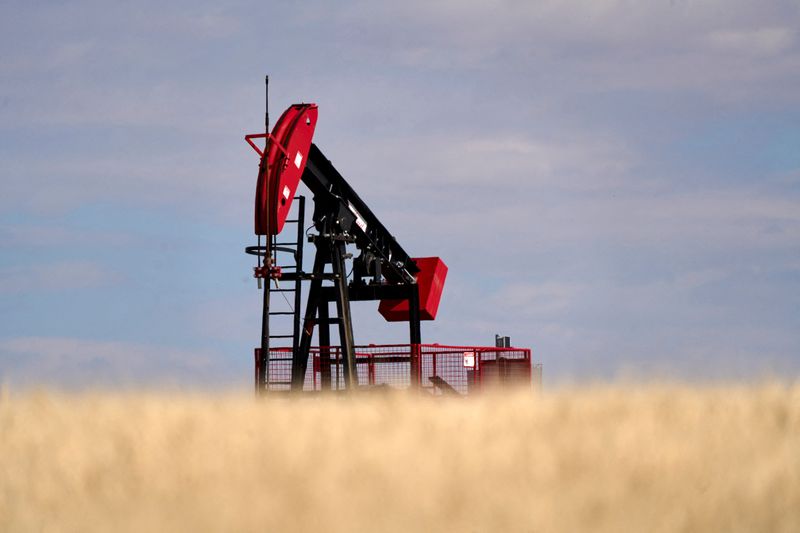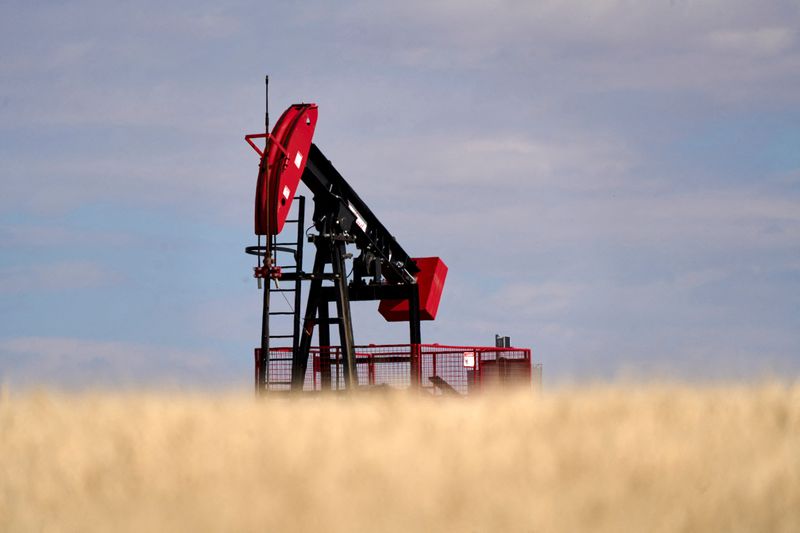
By Arathy Somasekhar
HOUSTON (Reuters) -Oil prices edged lower on Friday but remained on course for a fourth consecutive week of gains, as the latest U.S. sanctions on Russian energy trade added to worries about oil supply disruptions.
Brent crude futures were down 41 cents, or 0.5%, at $80.87 per barrel by 11:30 a.m. ET (1630 GMT), having gained 1.4% this week. U.S. West Texas Intermediate crude futures were down 89 cents, or 1.1%, at $77.81 a barrel, having climbed 1.6% for the week.
“Sanctions on Russia are causing tightness of supply in Europe, India and China as they scramble for supply,” Phil Flynn, senior analyst with Price Futures Group.
The Biden administration unveiled broader sanctions last week targeting Russian oil producers and tankers.
Investors are also assessing the potential implications of President-elect Donald Trump’s return to the White House on Monday. Trump’s pick for Treasury secretary said he was ready to impose tougher sanctions on Russian oil.
Also weighing on oil prices were expectations of a halt in attacks by Yemen’s Houthi militia on ships in the Red Sea following a Gaza ceasefire deal.
The Houthis’ attacks have disrupted global shipping, forcing ships to make longer and more expensive journeys around southern Africa for more than a year.
The Israeli security cabinet approved the deal on Friday, paving the way for the return of the first hostages from Gaza as early as Sunday. The accord was still conditional on the approval of the full cabinet, which was meeting on Friday afternoon.
Expectations for increased demand lent some support to the oil market earlier on Friday. Data this week showed inflation easing in the U.S., the world’s biggest economy, bolstering expectations of interest rate cuts.

Traders are also assessing fresh data from China, the world’s top oil importer. Its economy fulfilled the government’s ambitions for 5% growth last year.
However, China’s oil refinery throughput in 2024 fell for the first time in more than two decades barring the pandemic-hit year of 2022, government data showed on Friday, as plants tempered operations in response to stagnant fuel demand and depressed margins.
This post is originally published on INVESTING.




